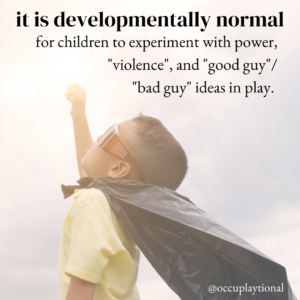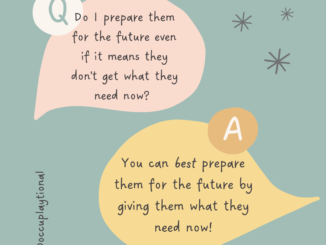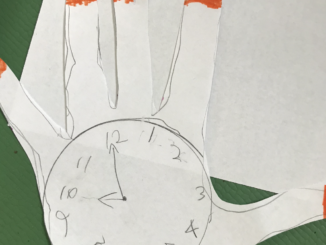
Some adults get alarmed when they hear children using language that sounds “violent” or involves themes of morality, such as “good guys” and “bad guys”.
They may want to explain to the child that morality is more complicated than that — that people aren’t inherently “good” or “bad”, but that people make choices. Or they might not feel that the idea of “good guys”/“bad guys” fits with their adult, religious worldview, and might want to try to lecture their child about that instead.
They might get concerned that “violent” themes are coming from somewhere, or get hung up in the specifics of the language that their child is using.
Of course, every parent has to make the decision about what rules that they make for their family. It can simultaneously be fully developmentally normal for kids to experiment with this type of play, AND adults are allowed to decide that they want to set limits around what kind of play is allowed in their house.
It just helps to know that it’s perfectly normal. Children are learning that they live in a world where there is power imbalance, and they’re acutely aware that they’re at the bottom of that power imbalance. They’re learning how language can be as powerful as actions—that “I’m gonna blast you!” or “I’m gonna punch you into the dumpster!” might be as upsetting to someone else as actually pushing or shoving or hitting them is. (And, conversely, that it might get them “in trouble” the same exact way. Which only reinforces what they’re learning, that it’s extremely powerful! If you want to take the power struggle out of it, help them learn to name the emotion behind the words, rather than “getting them in trouble” for learning to express themselves verbally.)
And, as always, children learn best and truest through play…so all of these themes might come out in the things they want to play. It’s okay if you don’t want to play those things; you’re always allowed to set a boundary for yourself. It’s also okay to step back and give them space to explore these things when they play by themselves or with peers.



